
Chicarrelli on Jack White: "He has an attack unlike anyone else. The concussion of his playing is just unbelievable."
Joe Chiccarelli is one of music’s most respected producers and engineers—and one of the most versatile. After making his mark as Frank Zappa’s studio right-hand, he went on to work with such artists as U2, Elton John, Beck, Tori Amos, Morrissey, Dwight Yoakam, Rufus Wainwright, and Jason Mraz. He’s particularly admired for his recent work with guitar-heavy rock bands such as the White Stripes, the Raconteurs, the Strokes, My Morning Jacket, the Shins, and the Killers.
Joe started out as a bass player in his native Boston. He only plays a bit of guitar, but he knows more about getting great guitar sounds that almost anyone I know. I’ve been lucky to enough to record several albums under his supervision, and each time I’ve been floored by his superb taste, vast tech knowledge, superhuman work ethic, and mind-boggling attention to detail. He can be a real taskmaster! But he’s also one of the most patient, considerate, and just plain sweet guys I’ve ever worked with.
Joe is the polar opposite of those technicians who jealously guard their “secrets.” He’s always generous with his knowledge, and was kind enough to take a break from a recent session to let me fire a few questions at him.
You started out working with a rather unique guitarist.
I was a 20-year-old assistant engineer when I started working with Frank Zappa. At the time, I didn’t know much about his music or playing, so it was pretty mind-blowing. Frank was so far ahead of his time, and still is almost 20 years after his death. Back around 1980 he had racks of gear: Eventide Harmonizers, Allison Gain Brains, MXR Flangers, Marshall Time Modulators. He’d split his live signal into four different Marshall amps, two for clean tones and two for dirty tones, and balance them differently song-by-song. He might kick in an effect on one side of the stage and not the other, or do crazy panning and stereo-processing effects.
Who are some other players who made a great impression on you?
I’ve been fortunate to have worked with so many great guitarists, from band players to studio musicians to acoustic players. I always try to be a sponge, learning what I can by watching them, studying their technique, and seeing how they use technology. Obviously, Frank was in a league of his own. But around the time I started working with him, I got involved in the LA pop world as a freelance engineer. I got to see how the great studio musicians worked, guys like Michael Landau, Tim Pierce, George Doering, and Dean Parks. The first thing that was eye-opening to me was how well they could play in tune.
Funny how people seldom mention “ability to play in tune” when they discuss a player’s technique.
It takes a lot of technique to play in tune! It’s so much in the left hand. I recently worked with Michael again, and it was shocking to watch his hands and see how light his touch is. He’s constantly compensating for the guitar’s intonation. His technique is just stunning. Great studio players like Michael also know that there’s only so much sound that can come out of two speakers. They know how to sculpt their parts. Which register to play in. Which inversion to use. When to come to the forefront. When to stay out of the way. They know how to make a part speak—or not speak, and just be supportive. They’re incredible musicians. Now, a player from the rock band tradition is an entirely different thing.
You mean, not as technical?
Well, I think of working with Neal Geraldo with Pat Benatar in the ’80s. He was an amazing player for that type of music. Regardless of what you think of that ’80s aesthetic, he made it sound real, urgent, and like something from the street. He was never calculated, cheesy, or formulaic. Or the Strokes: I love watching the way Nick Valensi and Albert Hammond, Jr., craft parts. When you pull one of their songs apart, it’s never what you think it is. There are all sorts of interesting harmonizations. Maybe someone’s playing up a third all the way through, then someone else adds an upper voicing here and there. They never have the obvious, clichéd rock moments. They’re brilliant at orchestrating. Nick is a phenomenal technician, and a great master of melodies. I have so much respect for that band. There’s always more there than meets the eye.
What about Jack White?
Jack is a motherf—er! He is all about emotion, performance, and energy. He just gets out there and puts it in your face. For him, it’s all in the right hand. He has an attack unlike anyone else. He’s certainly not heavy or sloppy, and he has great precision. But you simply can’t stand in front of one of his amps, even if it’s only on 1 or 2, because the concussion of his playing is just unbelievable. Obviously, he plays simple parts, but man, they come through with such conviction and passion. “Unleashed” is the only way I can describe it. The technological aspects are real simple: two guitar amps, his favorite stompboxes. It’s more about the emotion and choosing the right guitar for the part. What a great player!
The same goes for My Morning Jacket. Jim James and Carl Broemel have such chemistry as guitarists. Carl is just a great rock player who constantly comes up with tasty parts that complement Jim. Everyone in that band is so aware of respecting the song. They’re geniuses at finding those moments that grab your ear and keep you glued to the song. Those moments are really what great records are all about.
How do you craft great guitar sounds in the studio?
Well, it’s good to have choices. I like it when a player brings in several guitars and amps and dozens of stompboxes. I’ll usually set up a bunch of microphones. Near and far mics. Dynamics. Condensers. Ribbons. Sometimes the answer is really simple, like an SM-57 on the speaker cone. Other times, it’s four mics mixed together and compressed to death. It’s all about what fits the song and the part.
What’s some of you favorite guitar gear to work with?
In terms of amps, it’s hard to beat a great AC-30. Dumble amps are impressive in a more hi-fi sort of way. Some of the newer amps, like Divided by 13s, are fantastic. And there are not many things than can touch a ’65 Deluxe Reverb. That’s a great choice if you just want to walk into the studio with one amp. But I also love weird stuff with unique personalities, like Roland Jazz Choruses, or funky old Kays and Oahus.
How about guitars?
I guess I’m a bit of a purist. I’m not very impressed when I see someone walk in with a hot-rodded Strat. The classic stuff remains classic to me. There are some great new guitars, like Duesenbergs, which sound absolutely amazing. On the acoustic guitar front, it’s hard to beat old Hummingbirds, or ’60s and ’70s Martin D-28s. Taylors are a world unto themselves, but they sometimes work great for that modern, hi-fi sound. I’m working with Dwight Yoakam now, and he’s really into ’60s Casinos. Now Epiphone is making a new Casino called the Dwight Trash. It’s a great-sounding guitar. It looks a little like a Trini Lopez, with a reverse Firebird headstock. Man, it’s got a personality! But if I could have only one guitar, it might be a good Tele or ES-335.

Joe Chiccarelli: "The more you take yourself out of the picture and dive into the emotional world of the song, the better music you’ll make."
But I have to say, it’s not really so much about the “stuff.” Nowadays everyone’s read all those recording magazines, and they all know about 57s and 87s and Royers and 1176s. The trickier part is making wise musical choices. What will complement the melody? What will stay out the range of the vocal? What will give the keyboard player room? What will make the bridge come alive? It’s all about serving the song. The more you can take yourself out of the picture and dive into the emotional world of the song, the better music you’ll make.
You’ve been doing this for a long time. What keeps you inspired?
I’m driven by a pursuit for something fresh. I’m always looking for someone who can reinvent things, the way a great painter can speak to you like no other painter does. That’s how I see great artists or guitarists. Radiohead, U2, Bob Dylan, and Joni Mitchell—they all have their own language. That’s what makes me inspired. It makes me want to come up with my own language to complement theirs. And you know what? Recording is still a mystery to me. Every day is guesswork!




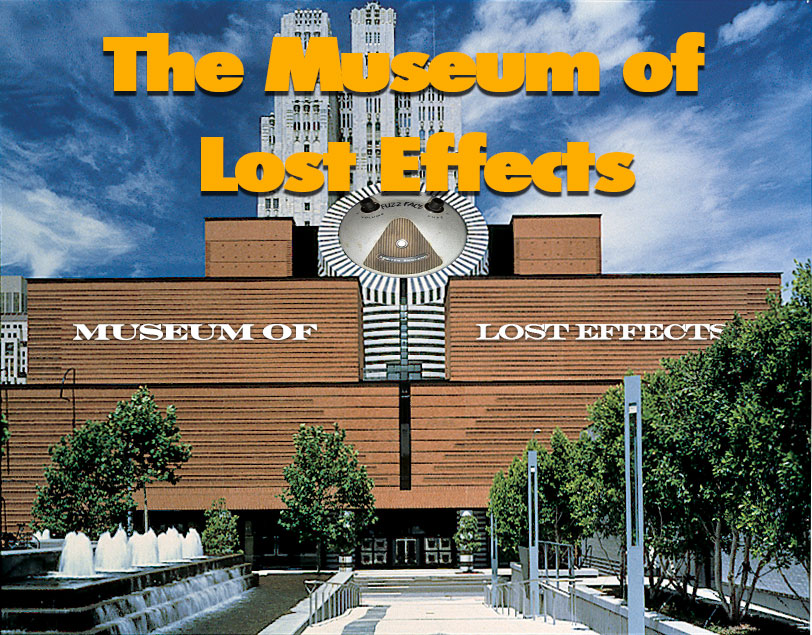

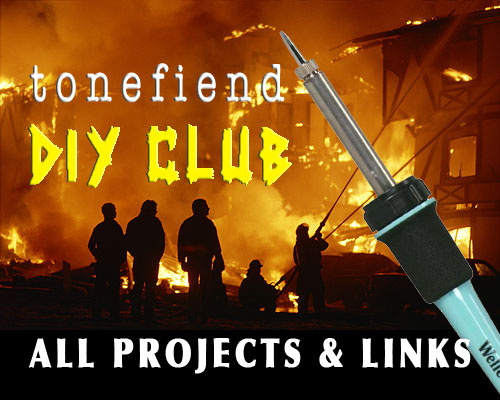
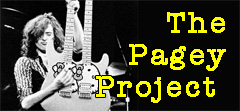
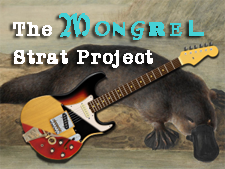
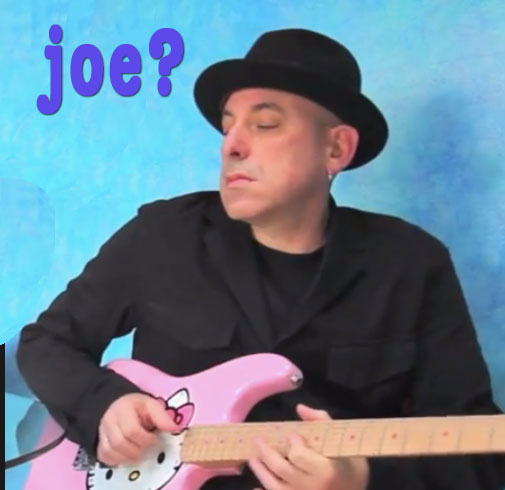
Great interview and in site from an amazing producer. Having never worked with one its great to hear his take on different artists and a glimpse at the recording process. Love the blog Joe!
Thanks for the kind words, David. Joe C. is one of my heroes, and it was great having an excuse to hang out with him. 🙂
I always wish guitar mag stories delved more into production. So many of the great sounds are really collaborations between players and producers/engineers. And in some notable cases, it’s almost entirely the work of the producer!